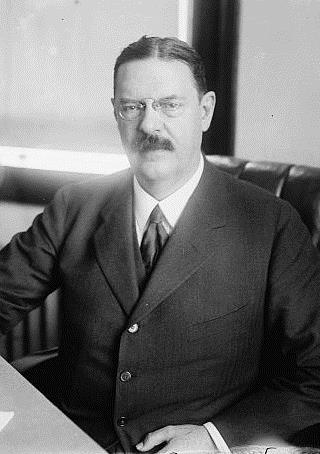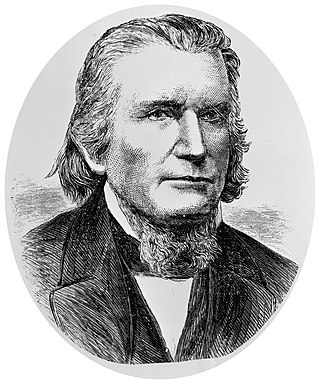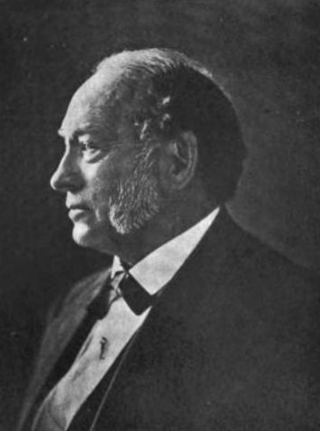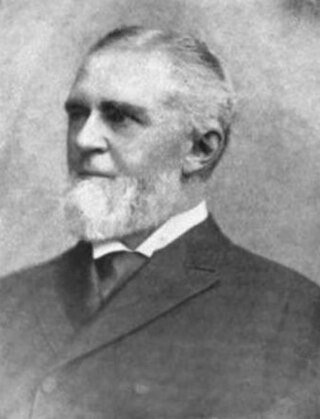
Elizabeth Cochrane Seaman, better known by her pen name Nellie Bly, was an American journalist who was widely known for her record-breaking trip around the world in 72 days in emulation of Jules Verne's fictional character Phileas Fogg, and for an exposé in which she worked undercover to report on a mental institution from within. She pioneered her field and launched a new kind of investigative journalism.

Isaac Merritt Singer was an American inventor, actor, and businessman. He made important improvements in the design of the sewing machine and was the founder of what became one of the first American multi-national businesses, the Singer Sewing Machine Company.

John Brown and Company of Clydebank was a Scottish marine engineering and shipbuilding firm. It built many notable and world-famous ships including RMS Lusitania, RMS Aquitania, HMS Hood, HMS Repulse, RMS Queen Mary, RMS Queen Elizabeth and Queen Elizabeth 2.

Lewis Nixon was a naval architect, shipbuilding executive, public servant, and political activist. He designed the United States' first modern battleships, and supervised the construction of its first modern submarines, all before his 40th birthday. He was briefly the leader of Tammany Hall. He started an ill-fated effort to run seven major American shipyards under common ownership as the United States Shipbuilding Company, and he was the chair of the New York City commission that began construction of the Williamsburg Bridge.

Count Igor Cassini Loiewski was a Russian-American syndicated gossip columnist for the Hearst newspaper chain. He was one of the journalists to write the Cholly Knickerbocker column.

Marguerite Snow was an American silent film and stage actress. In her early films she was billed as Margaret Snow.

Sir Charles Clow Tennant, 1st Baronet, was a Scottish businessman, industrialist and Liberal politician.

Harcourt Joseph Pratt was a U.S. Representative from New York and notable politician from Ulster County.
Alexander Smith Cochran was a manufacturer, sportsman and philanthropist from Yonkers, New York.

Henry Burden was an engineer and businessman who built an industrial complex in Troy, New York called the Burden Iron Works. Burden's horseshoe machine, invented in 1835, was capable of making 60 horseshoes a minute. His rotary concentric squeezer, a machine for working wrought iron, was adopted by iron industries worldwide. His hook-headed spike machine helped fuel the rapid expansion of railroads in the U.S. The Burden Iron Works is now an historical site and museum.

Marguerite Sylva was a Belgian born mezzo-soprano who achieved fame in opera, operetta, and musical theatre. She was particularly known for her performances in the title role of Bizet's Carmen, which she sang over 300 times in the course of her career. Sylva was a pioneering recording artist for Edison Records and made many recordings for the company from 1910 to 1912.

James Scollay Whitney was an American business executive and politician. He was the father of Henry Melville Whitney and William Collins Whitney, founders of the Whitney family business interests.

Jabez Abel Bostwick was an American businessman who was a founding partner of Standard Oil.

Elizabeth Margaret Jane Humphreys née Gollan was a Scottish novelist from Inverness-shire who wrote 120 books, plays and essays, and founded the Writers’ Club for Women.

Theodore Alfred Bingham was the New York City police commissioner from 1906 to 1909.

John Henry James was an American football quarterback and manufacturer. He was the starting quarterback for Michigan's undefeated, national championship 1903 "Point-a-Minute" football team that outscored opponents 565 to 6. James later went into the manufacturing business. He was the founder of The Motor Foundry Co., a manufacturer of automobile parts in Detroit, and the James Motor Valve Company, which developed the innovative "James Valve" in the mid-1920s. He also served as the general manager of the Monarch Steel Castings Co., an innovator in the Solvay process.

Joseph Farren Soutar, was an English actor and singer who became known for his performances in Edwardian Musical Comedies in the West End and on Broadway. Later he acted in some serious plays. His mother was Nellie Farren, the famous principal boy in Victorian burlesque.
Ishbel Ross was an American newspaper reporter, novelist, and nonfiction writer. In a writing career spanning six decades, Ross wrote numerous biographies of prominent women, with her best-known work being the first substantial history of women journalists.

Marguerite Martyn was an American journalist and political cartoonist with the St. Louis Post-Dispatch in the early 20th century. She was noted as much for her published sketches as for her articles.

















